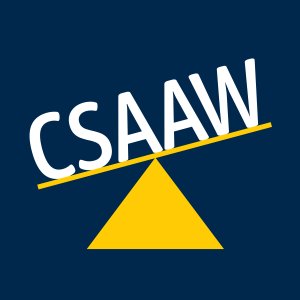Presented By: Complex Systems Advanced Academic Workshop (CSAAW)
CSAAW Talk | Power in numbers: insights from new data on lobbying in the United States
Galen Hall, PhD candidate - Sociology - University of Michigan

Click the link below to register for lunch
Abstract:
Organized interest groups sway policymaking at all levels of US governance. But for a long time political scientists have lacked systematic data on what these groups actually want out of policy. A new dataset of lobbying and testimony records from State legislatures allows unprecedentedly-detailed study of attempts to influence state politics. But it also brings many challenges. How should we understand — and model — the activities of groups so disparate as corporations, trade associations, nonprofits, unions, churches, and so on? Common approaches from political science, designed to capture the policy preferences of legislators, do not adapt well to this case. Borrowing from the networks and complex systems world, I propose methods for quantifying and characterizing the policy interests of these groups which capture (most of) the richness in the data while also making it legible for researchers. I also show how methods developed for recommender systems like Netflix or Spotify may be able to model the preferences of organized interests by treating them as “users” and the bills they lobby on as “products”. Finally, I point to several ways in which this information can improve the broader quantitative study of legislative politics.
Bio:
Galen started his PhD in Sociology in 2023. His primary research interests have so far focused on the politics of energy and climate in the American states and at the national level. After graduating in 2020 he worked in the Climate and Development Lab at Brown, leading several studies on public counter-movements against greenhouse gas mitigation policies as well as state-level interest group politics. At Michigan he will continue this line of research using multiple methods, primarily quantitative analysis of texts, demographic and political data, and data on interest groups.
Abstract:
Organized interest groups sway policymaking at all levels of US governance. But for a long time political scientists have lacked systematic data on what these groups actually want out of policy. A new dataset of lobbying and testimony records from State legislatures allows unprecedentedly-detailed study of attempts to influence state politics. But it also brings many challenges. How should we understand — and model — the activities of groups so disparate as corporations, trade associations, nonprofits, unions, churches, and so on? Common approaches from political science, designed to capture the policy preferences of legislators, do not adapt well to this case. Borrowing from the networks and complex systems world, I propose methods for quantifying and characterizing the policy interests of these groups which capture (most of) the richness in the data while also making it legible for researchers. I also show how methods developed for recommender systems like Netflix or Spotify may be able to model the preferences of organized interests by treating them as “users” and the bills they lobby on as “products”. Finally, I point to several ways in which this information can improve the broader quantitative study of legislative politics.
Bio:
Galen started his PhD in Sociology in 2023. His primary research interests have so far focused on the politics of energy and climate in the American states and at the national level. After graduating in 2020 he worked in the Climate and Development Lab at Brown, leading several studies on public counter-movements against greenhouse gas mitigation policies as well as state-level interest group politics. At Michigan he will continue this line of research using multiple methods, primarily quantitative analysis of texts, demographic and political data, and data on interest groups.